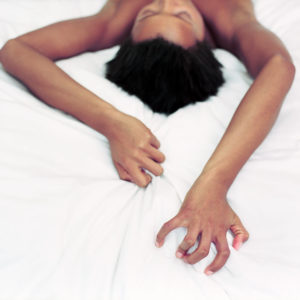STI: HERPES VIRUS
Many of us might have heard of the virus HERPES, thanks to Usher’s Herpes scandal, but most of us are still ignorant of this virus.
Herpes is a contagious virus that causes sore on your genitals or mouth. This virus can be painful and annoying, but it usually doesn’t lead to any serious health problems. Herpes is easily spread from skin to skin contact with someone who has the virus. You can get it when your genitals or mouth come in contact with genitals or mouth of people who already have the virus. Usually during oral, anal, or vaginal sex and kissing.
- TYPES
There are two types of Herpes: Herpes Simplex Virus type 1(HSV-1) and Herpes Simplex Virus type 2 (HSV-2).
- HSV-1: Also known as oral herpes, causes cold sore and blisters around the mouth and face. This type rarely affects the genitals, and may not always be transmitted sexually. Skin to skin contact is all that is needed to pass it on.
- HSV-2: This is generally responsible for genital herpes outbreak. This type, generally affects the skin, causing cluster of sores around the genitals. It rarely affects the mouth, but it’s generally passed sexually, through skin to skin contact

- RISK FACTORS
Anyone can be infected with HSV, regardless of age. In cases of sexually transmitted HSV, people are more at risk when they participate in risky sexual behaviors without the use of protection, such as condoms. For example:
- Having multiple sexual partners
- Having sex at younger age
- Having other sexually transmitted infections
- Having a weak immune system.

- SIGNS & SYMPTOMS
It’s important to understand that the signs and symptoms of this virus are not necessary visible. Someone might have this virus without showing any signs or symptoms, yet they will still be able to transmit the virus to others.
- Some of the signs associated with this virus includes:
- Blistering sores in the mouth or on the genitals
- Pain during urination (genital herpes)
- Itching
You may also experience symptoms that are similar to flu. These symptoms include:
- Fever
- Swollen lymph nodes
- Headaches
- Lack of appetite
- Tiredness
Note; a blood test and swab test from the blisters and sores is the only way successfully to diagnose HSV.

- PREVENTION
The only way to avoid STDs is to avoid completely unprotected vaginal, anal, or oral sex. If you are sexually active, you can do the following things to lower your chances of getting genital HSV.
- Be in a mutually monogamous relationship with a partner who is not infected with an STD
- Using latex condoms the right way, every time you have sex.
Note; not all HSV sore occurs in areas that can be covered by condom. Also, this virus can be transmitted from areas of the skin that do not have visible HSV sore. Therefore a condom may not fully protect you from this disease.
If you are in a relationship with a person known to have genital herpes, you can lower your risk of getting the virus if:
- Your partner takes an anti-herpes medication. This should be discussed with your doctor
- You avoid having vaginal, anal or oral sex when your partner has herpes symptoms outbreak.
- CURE

There is no cure for this disease, but medication can ease the symptoms and lower the chances of spreading the virus to another person. Outbreaks usually become less frequent overtime, and even though herpes can sometimes be uncomfortable and painful, it is not dangerous. People with HSV have relationship, sex and live perfectly health lives.
The virus dies quickly outside the body, so you can’t get it from hugging, holding hands, coughing, sneezing, or sitting on toilet seats.













